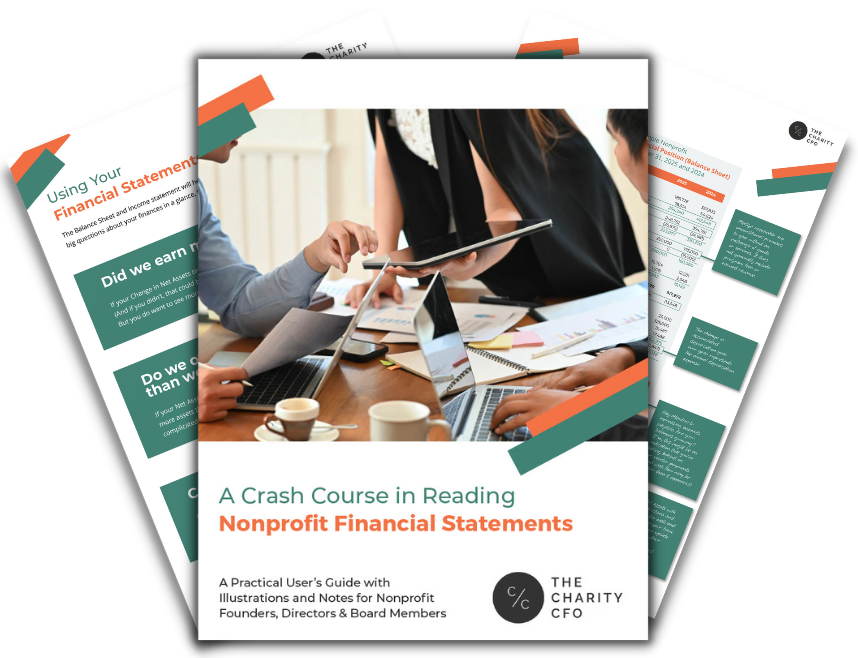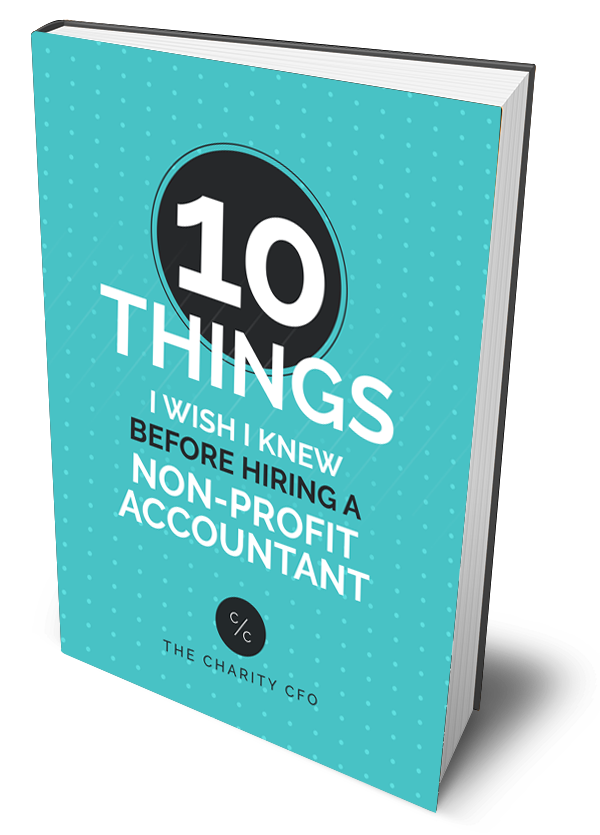Does the idea of an audit from the IRS leave you with sweaty palms? Most nonprofit leaders aren’t accountants and the thought of getting audited is a sizable fear. Luckily, being prepared can help you avoid accounting mistakes that could come up in a nonprofit audit.
This guide will help you better understand the common mistakes nonprofits make in their accounting systems. We also break down how to avoid these mistakes, so you can spend less time worrying about an audit and more time making an impact.
Mistake #1: Missing or Inaccurate Financial Records
Regardless of the type of audit, one of the most common mistakes found in nonprofit audits is missing or inaccurate financial records. A missing record or inaccurate numbers make it difficult for the auditors to verify financial transactions.
During the audit, you’ll generally be asked to show:
- Receipts for purchases
- Invoices and revenue records
- Donation records
- Payroll and other recurring expense reports
- Supporting documents related to finances
With all of the records required, it can be easy to make a mistake. For example, receipts get misplaced or someone accidentally files tax documents incorrectly.
Solution: Put a Record-Keeping System in Place
While inaccurate accounting records are a common mistake, they’re also easy to remedy going forward. If you don’t already, it’s time to put a record-keeping system in place. There are many software tools that offer low or discounted rates for nonprofits to help you accurately record your financials.
Even with a system in place, however, it’s a good idea to carefully crosscheck your records before submitting them to an auditor.
Mistake #2: Lack of Internal Controls
A nonprofit without internal controls in place is a red flag for an auditor. This signals the auditor to take a closer look at financial records and documents. In many cases, a nonprofit without appropriate accounting processes and internal controls are more likely to have mistakes or inaccuracies in its financial records.
Solution: Create a Strong Accounting Process
Nonprofit leaders can solve this problem by creating and implementing strong internal controls for the organization. You’ll likely want to ask your nonprofit accountant to help you set up your accounting systems so you know they’re correct from the start.
Your accountant will often leverage technology to help you create policies and processes that:
- Accurately records transactions
- Spells out who is responsible for which tasks
- Uses internal auditing to catch mistakes early
- Includes training and onboarding
- Follows compliance and regulatory requirements
Mistake #3: Misclassification of Revenues and Expenses
Unlike a for-profit business, nonprofits have to follow strict guidelines when recording revenue and expenses. Nonprofit leaders have to carefully consider the nuance of nonprofit accounting when entering expense receipts, donation payments, or grant funding. If you’re not an accountant, this process can get confusing–fast.
For example, your nonprofit receives a donation. You have to properly record the donation based on when and how the money will be used. There may also be donor restrictions that come into play and further complicate the record-keeping process.
Revenue recognition is even more complicated than ever thanks to the changes in how FASB (Financial Accounting Standards Board) now requires nonprofits to record donations. The biggest takeaway is making sure you appropriately classify the difference between earned revenue and donations. Grants can be tricky and fall into a gray area between earned and donated.
Solution: Work with a Trusted Accountant
The complicated nature of nonprofit accounting is best left to financially-minded individuals. If this is you, great! If not, that’s okay too!
Whether you trust your financial prowess or not, your nonprofit can benefit from a trusted accountant with nonprofit experience. A good nonprofit accountant can help double-check your work and keep your records in compliance.
Mistake #4: Mishandling Funding Restrictions
As a nonprofit, your organization has to consider funding restrictions when using funds. Funding restrictions are especially important to note when dealing with:
- Donations
- Grants
- Contracts
Many nonprofits make mistakes when classifying and using funds. While most accounting mistakes can be corrected, more serious mistakes could lead to accusations of fraud.
We have seen so many cases of nonprofits not only failing to track restrictions but finding themselves spending restricted dollars on general operations. Not only is this a risky business, but not spending money in accordance with donor wishes is a fast track to damaging donor relationships.
Solution: Create Fund Usage Guidelines
To avoid mishandling donations or other funds, you need to create usage guidelines for your employees. A good set of guidelines will set clear expectations on what to do any time the organization receives funds, including:
- Where the money is from
- What the money is intended for
- When the money is used
- How the money is used
Pro tip: you should be able to use accounting software to track restrictions, including tracking by grant.
Mistake #5: Misclassifying Workers
Volunteers? Independent contractors? Employees?
Your organization might have all of these working to help you meet your mission and goals. It’s imperative that you accurately classify workers within your organization. Unfortunately, many nonprofit leaders are unsure of which classification their workers fall under–leading to misclassified workers and a headache at tax time.
While the classification of employees typically falls under a human resource department task, it can have significant financial consequences. In fact, we often warn that nonprofits do not pay enough attention to their compliance with the Department of Labor and the IRS. These penalties can be crushing for nonprofits.
Solution: Educate Organizational Leaders on Worker Classification
Classifying workers can be confusing, but it’s worth taking the time to educate yourself and other organizational leaders on how to do it right.
Luckily, the IRS provides a Worker Classification 101 guide to help clear up the confusion. You can refer to this document as needed to accurately sort employees from independent contractors.
If you haven’t engaged with an employment law attorney or a human resource specialist, you should add this professional to your roster. The investment now will save you in the future.
Avoid the Risk of a Nonprofit Audit
Making accounting mistakes in your nonprofit can make the audit process longer and more complicated. In fact, we have seen audit firms charge 2-3 times what the original cost of the audit was quoted simply because the organization was prepared or their books were a mess. If your records have serious mistakes, you might even face fines or other consequences. When it comes to your organization’s accounting, it’s not worth the risk to do it all by yourself.
That’s where The Charity CFO can help. We provide expert accounting and bookkeeping services for nonprofits, including audit prep. By working with us, you can be sure your financial records are accurate and within compliance regulations.
Contact us today to learn how we can help your organization avoid audit mistakes and maintain accurate records.

Do You Struggle to Make Sense of Your Financial Statements?
Get our FREE GUIDE to nonprofit financial reports, featuring illustrations, annotations, and insights to help you better understand your organization's finances.
Get the free guide!



0 Comments